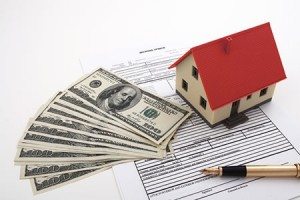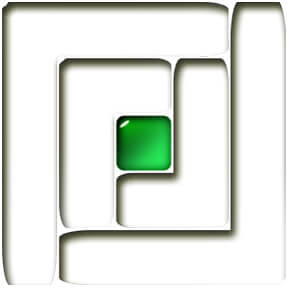Mortgage and Mortgage Closing
 In a residential mortgage, a home buyer pledges his or her house to the bank. If the buyer fails to make the mortgage payments, then bank has a claim on the property and sells to recover the lent amount. The bank can evict the home’s tenants and sell the home to recover the amount in case of foreclosure.
In a residential mortgage, a home buyer pledges his or her house to the bank. If the buyer fails to make the mortgage payments, then bank has a claim on the property and sells to recover the lent amount. The bank can evict the home’s tenants and sell the home to recover the amount in case of foreclosure.
Definition of Mortgage:
“A debt instrument, secured by the collateral of specified real estate property, that the borrower is obliged to pay back with a predetermined set of payments. Mortgages are used by individuals and businesses to make large real estate purchases without paying the entire value of the purchase up front. Over a period of many years, the borrower repays the loan, plus interest, until he/she eventually owns the property free and clear. Mortgages are also known as “liens against property” or “claims on property.” If the borrower stops paying the mortgage, the bank can foreclose. “
Forms of Mortgage:
There are different forms of mortgage. The most common type of mortgage are given here:
Fixed Rate Mortgage:
The borrower pays the same interest for the whole life on the loan with a fixed-rate mortgage. With this form of mortgage the interest rate and principal amount never changes. This kind of mortgage has fifteen to thirty year terms. If the market interest rate changes, the borrower’s payment does not change. If the market interest rate drops significantly then borrower may be able to secure that lower rate by refinancing the mortgage. A fixed-rate mortgage is also called a “traditional” mortgage.
Adjustable-Rate Mortgage:
The interest rate is fixed for initial terms in case of adjustable-rate mortgage (ARM), but it fluctuates with market interest rates. The initial interest rate is often below-market rate, which can make a mortgage seem more affordable than it really is. The borrower may not be able to afford the higher monthly payments when interest rate fluctuates. ARM is less expensive if market interest rate is decreased. In case of decrease or increase in the market interest rate, the monthly payments are unpredictable.
Interest-Only Mortgage & Payment-Option ARMs
Interest –Only Mortgage and Option-Option ARMs are best used by the sophisticated borrowers. Many homeowners got into financial trouble with these types of mortgages during the housing bubble years.
What is Mortgage Closing?
“A mortgage closing is the legal process in which ownership of a home is transferred from one person to another, and generally the purchaser receives a loan to finance the home purchase.”
Closing process involves decision that can save or cause you money. Two main issues can make closing complicated or easy, the number of documents and the costs involved.
What happens at a mortgage closing?
At the time of mortgage closing, all the documents are signed that are related to the mortgage loan and the transfer of property from seller to buyer. These documents may include a mortgage note that grants the ownership of the home. The Real Estate Settlement Procedure Act Paperwork, it states that you completely understand the closing procedure and obligations related to your mortgage. The Truth in Lending Disclosure Statement, which lays out the terms of the loan including the annual percentage rate and information on points; and the HUD-1 Form, which itemizes all the costs related to the sale of the home.
It is not just signing the documents, but the transfer of money may be involved. The buyer and sometimes the seller would pay the closing costs or related to escrow, the lender gives the money to the closing agent to cover the mortgage amount. The home buyer shows the proof of home owner insurance so that the lender will fund the mortgage loan sets up an escrow account for the buyer, which will help the buyer pay taxes and insurance on the property. As a final step the seller or his agent will give the keys to the buyer and the buyer receives the title to the property. The attorney or title company officially records certain documents.
Who will attend the mortgage closing?
The requirement for attending the mortgage closing may be depending on where you live. In general, the buyer, the seller, the escrow/closing agent, attorneys for both the buyer and seller and sometimes the title company, the mortgage lender and real estate agent are required to attend the closing of a mortgage.
When will my mortgage close?
The mortgage closing is the last step in the process of buying a home before you official get the ownership of a property. So, before closing, you will need to find a home you like, make an offer, get the approval from a mortgage lender and get the offer accepted by seller.
The mortgage closing is the final step in the home-buying process before you officially own the home. The process of closing is completed once all the required documents are signed and the amount has been transferred.
